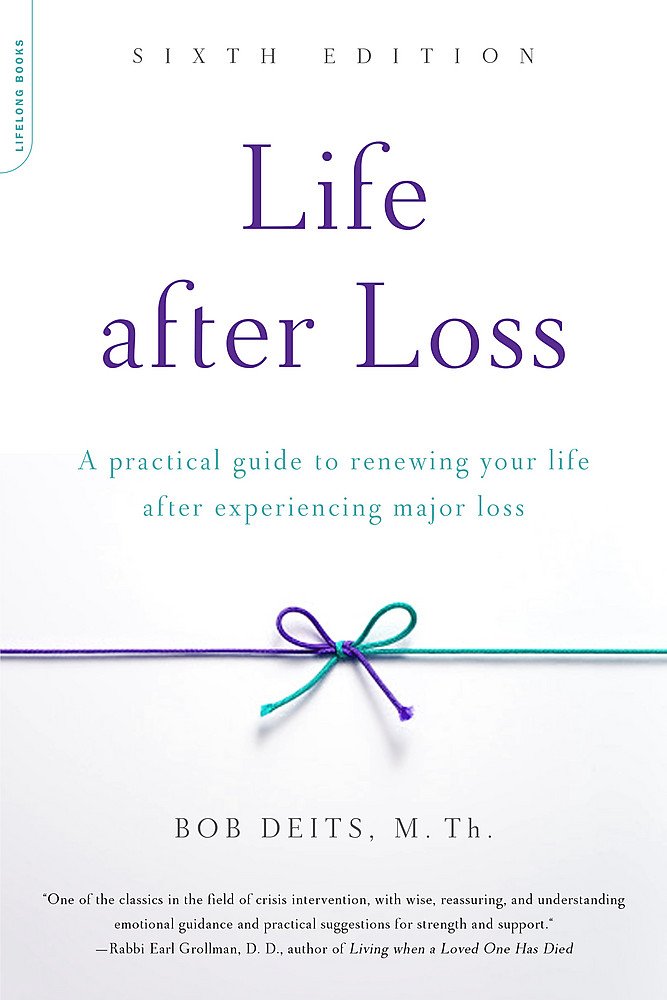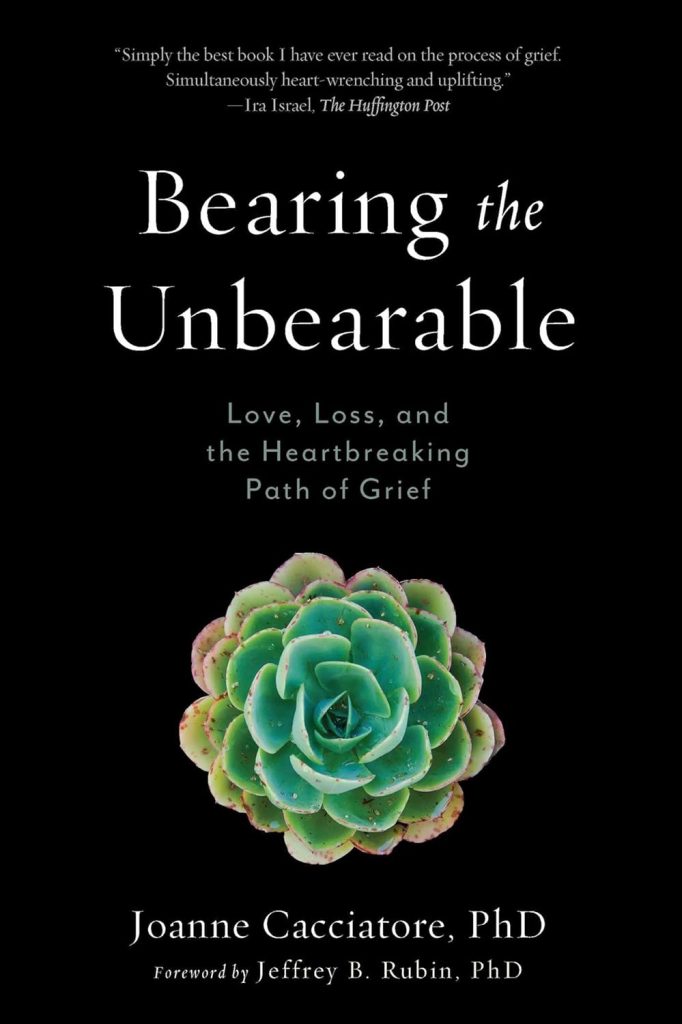Last month, I lost my Auntie Lee. She was my godmother, my second mother, and my mom’s best friend of 65 years. Her passing added to my numbness — a feeling that has been intensifying over these past two years after suddenly losing my brother-in-law and a lifelong family friend. In my mind and my heart, Auntie Lee deserved more of me than what I could give. Guilt settled in. I lost the ability to feel anything except worry and fear, waiting for the next shoe to drop. I was in emotional limbo. I wondered if there was an end to my grief and a start to feeling more like myself once again.
Instead of fear, one friend shared with me that she looks at grief another way, and that’s as love—the love of longing for what once was and wanting back what is no longer ours. Finality, in this case, is not just about the passing of a loved one. I’ve learned that grief can appear in any event where we’ve experienced a loss—a breakup, job loss, losing a home, or a serious illness. Grief is a common thread of life, yet how we grieve is as different from who we are.
We live in a world that wants us to “get over it” and move on much more quickly than the time needed to accept loss and begin to heal. As painful as it may be, allowing grief to be present and run its course is part of recovery. It’s a process that requires patience, empathy, and the ability to fully embrace feelings that may arise, including sadness, anguish, guilt, or anger. As another friend said, pushing grief down will prolong the pain. Grief will always come back in other areas of your life. Letting grief out in whatever emotion you feel at that moment is a crucial part of how we heal.
Donna Schuurman, family therapist and Executive Director Emeritus at the Dougy Center relays how grief is intertwined with living, “Life is a process of accumulating losses. How we integrate or ignore, process or push away those losses – of everything: jobs, friendships, relationships, health, things that matter to us – starts to become patterns.” She adds, “It shapes how we look at the world, who we become, how we’re able to show up for other people.”
Coping Your Way Through Grief
Without necessarily realizing it, how we learn to cope with grief can create patterns for how we heal.
My friend MaryBeth has accepted that her grief is here to stay. After the sudden loss of her son Colin three years ago, she describes grief as a wave, “Some days it’s slow and easy, you can go through your day knowing it’s there and being able to wade through and manage. Other days, it’s harsh and unbreakable, more like a tidal wave that pounds on your chest, pushes you back, and stops you from taking a step forward.”
Over time, MaryBeth has found ways to cope. After the immense weight of sorrow and numbness, she looked for normalcy in her life. She found it through therapy, the support of family and friends, and doing what she loved with healing exercises for clients at her Pilates studio. She turns to others as well to talk about her grief and honor her son, “I always feel as if there is someone I can reach out to and just talk about Colin and how I am feeling. That connection to him gives me great relief.”
Acceptance is also a daily practice for MaryBeth, “I am a big believer in prayers—every day. To me, this feels like meditation and brings my thoughts to a better place. With my voice and words, I can be kind to myself, allowing the emotions to flow through me, respecting them, honoring them, and thanking them. Once again, I am riding the wave.”
Grief is complicated. How we mourn can be as unique as who we are and what we’ve experienced. As much as we crave a linear path forward, the stages of grief can be all over the place. Learning to accept an experience for what it is can be a good first step toward a healthy way of coping.
In the throes of grief, a first response may be to retreat and protect our feelings. We convince ourselves that it’s too painful and overwhelming to even talk about our grief. We try to contain our emotions and suffer alone. However, the reality is that the pain associated with grief is a shared experience—so many others can understand and relate to what we are feeling. Our grief becomes an open door for others to listen and tell their own personal stories. This shared connection of empathy can build stronger connections with each other, helping us understand that pain is part of life.
Amidst our struggling, even perfect strangers can offer comforting words. One memory that still resonates with me was a chance encounter during a flight. At that time, I was in the middle of a painful divorce. I was muddling through life, a shadow of myself, trying to get through each day, feeling vulnerable and uncomfortable in my own skin. I sat next to a stranger who immediately recognized my pain and asked a simple question, “How are you doing today?”
What a beautiful gift—an invitation to share my grief experience with someone who listened with patience, kindness, and encouragement. Her own experience of grief gave me hope that this period of intense sorrow would pass. In my darkest moments, I would fondly remember her calm, reassuring words, which would settle my thoughts and bring me back to a better place.
Living with Grief – Healing Practices
Grief can be overwhelming, a roller coaster ride that seems like it will never end. Talking to loved ones is an essential part of working through your emotions. There are also trained mental health professionals with experience in grief counseling. Sometimes, the idea of finding a therapist can be overwhelming during a time when decisions are difficult to make. Resources are available to help with your search. Resources to Recover, for example, offers a free service that helps people connect voice-to-voice with expert consultation or in-person treatment and support.
Grief resources are also widely accessible in books and online forums. Recommendations from therapists and friends can support a better understanding of grief’s place in our life experience. Books that have been helpful to me include “Life after Loss: A Practical Guide to Renewing Your Life after Experiencing Major Loss” by Bob Deits and “Bearing the Unbearable: Love, Loss, and the Heartbreaking Path of Grief” by Dr. Joanne Cacciatore.
I’ve also found comfort in “All There Is with Anderson Cooper,” a podcast that shares stories of grief. As a child, Cooper lost his father and only sibling. His podcast is a personal journey to address his relationship with grief decades later and learn from others how they cope and find clarity with tremendous loss.
As best as possible, there’s also comfort in keeping routines. Incorporating space for interests and activities can bring you moments of joy to reflect on when dealing with difficult emotional obstacles. Just the practice of setting a date in a calendar can help us mentally by giving us something to look forward to. I remember mentally getting relief by knowing I had a plan to look forward to, even if a get-together with friends was weeks away. Those plans and then the next plan got me through a difficult period of grief.
A lack of routine can also affect our physical health, a known direct link to mental health. Physical reactions to grief can include a lack of appetite, low energy for activity, or fatigue from lack of sleep. While many of these symptoms can be short-term, they derail our ability to heal and cope. Talk to trusted friends, family, and grief professionals about ways to improve your well-being throughout your grief experience.
One of the first steps to coping is recognizing that grieving is a normal process of life. We don’t need to suffer in silence. There are many ways to heal if we acknowledge that our journey requires patience and kindness with ourselves. This mindfulness is one first step to healthy healing.
About the Author: Julie Andersen has been a communications professional in the commercial real estate and financial service industries for over twenty years. Her curiosity in telling stories has pivoted to supporting mental health journeys, promoting local businesses, and sharing practices for sustainable living. Julie is a member of the Resources to Recover Advisory Board to Laurel House, Inc.
Life after Loss: A Practical Guide to Renewing Your Life after Experiencing Major Loss
by Bob Deits
"One of the classics in the field of crisis intervention" (Dr. Earl Grollman), Life after Loss is the go-to resource for anyone who has suffered a significant life change. Loss can be overwhelming, and recovery often seems daunting, if not impossible. With great compassion and insight, Deits provides practical exercises for navigating the uncertain terrain of loss and grief, helping readers find positive ways to put together a life that is necessarily different, but equally meaningful. With two new chapters and significant changes throughout reflecting Deits's ongoing experience in counseling, Life after Loss is an essential "roadmap for those in grief" (Lawrence J. Lincoln, MD, Staff, Elisabeth Kübler-Ross Center).
Get the bookBearing the Unbearable: Love, Loss, and the Heartbreaking Path of Grief
by Dr. Joanne Cacciatore
If you love, you will grieve—and nothing is more mysteriously central to becoming fully human.
Dr. Cacciatore is featured in the 2021 documentary series "The Me You Can't See," from Oprah, Prince Harry, and Apple TV.
Bearing the Unbearable is a Foreword INDIES Award-Winner — Gold Medal for Self-Help.
Get the bookPhoto by Photo By: Kaboompics.com: https://www.pexels.com/photo/a-sad-woman-in-black-top-holding-a-gray-cloth-8531980/
The opinions and views expressed in any guest blog post do not necessarily reflect those of www.rtor.org or its sponsor, Laurel House, Inc. The author and www.rtor.org have no affiliations with any products or services mentioned in the article or linked to therein. Guest Authors may have affiliations to products mentioned or linked to in their author bios.
Recommended for You
- How to Protect Your Mental Health During the Holidays with a Gentle Reset - December 17, 2025
- Crisis Transport for Teens: A Compassionate Bridge to Mental Health Care - December 15, 2025
- Why a Mental Health Retreat Can Transform Your Recovery Journey - December 11, 2025









